| в–І м „л¶ҒлҸ„мқҳнҡҢ к№Җм •кё°(л¶Җм•Ҳ = мҳӨлҘёмӘҪ) мқҳмӣҗмқҙ м—ӯмӮ¬м Ғ мӮ¬мӢӨкіј мң м Ғм§ҖлҘј л°”нғ•мңјлЎң 'м „л¶Ғмқҳ м§ҖнҸ¬ к№Җкө¬мҷҖ м ңмЈјлҸ„мқҳ лҸҢлӢҙл¬ёнҷ”'лҘј нҷңмҡ©н•ң лӢӨм–‘н•ң л¬ёнҷ”көҗлҘҳ мҪҳн…җмё көҗлҘҳмқҳ л¬јкј¬лҘј м—ҙкё° мң„н•ҙ мөңк·ј 1л°• 2мқј мқјм •мңјлЎң м ңмЈјлҘј л°©л¬ён•ҙ мҳӨмҳҒнӣҲ(мҷјмӘҪ) м§ҖмӮ¬мҷҖ нҳ‘л Ҙ л°©м•Ҳмқ„ лӘЁмғүн•ң л’Ө '2023 мғҲл§ҢкёҲ м ң25нҡҢ м„ёкі„мҠӨм№ҙмҡ°нҠё мһјлІ„лҰ¬' м„ұкіөк°ңмөңлҘј кё°мӣҗн•ҳл©° кё°л…җмҙ¬мҳҒмқ„ н•ҳкі мһҲлӢӨ. / мӮ¬м§„м ңкіө = м „лқјл¶ҒлҸ„мқҳнҡҢ © к№Җнҳ„мў… кё°мһҗ |
|
м „л¶ҒлҸ„мқҳнҡҢ к№Җм •кё°(л¶Җм•Ҳ) мқҳмӣҗмқҙ м—ӯмӮ¬м Ғ мӮ¬мӢӨкіј мң м Ғм§ҖлҘј л°”нғ•мңјлЎң 'м „л¶Ғмқҳ м§ҖнҸ¬ к№Җкө¬мҷҖ м ңмЈјлҸ„мқҳ лҸҢлӢҙл¬ёнҷ”'лҘј нҷңмҡ©н•ң лӢӨм–‘н•ң л¬ёнҷ”көҗлҘҳ мҪҳн…җмё көҗлҘҳмқҳ л¬јкј¬лҘј н…„лӢӨ.
27мқј м „л¶ҒлҸ„лҠ” "мөңк·ј м „л¶ҒлҸ„мқҳнҡҢ к№Җм •кё° мқҳмӣҗкіј м „л¶ҒлҸ„ л¬ёнҷ”мң мӮ°кіј кҙҖкі„мһҗк°Җ 1л°• 2мқј мқјм •мңјлЎң м ңмЈјлҘј л°©л¬ён•ҙ мҳӨмҳҒнӣҲ м§ҖмӮ¬мҷҖ м ңмЈјлҸ„мқҳнҡҢ к№ҖкІҪн•ҷ мқҳмһҘ л“ұмқ„ л§ҢлӮҳ, л¶Җм•Ҳ м¶ңмӢ мңјлЎң кі л Өл§җ м ңмЈјнҢҗкҙҖмқ„ м—ӯмһ„н•ң м§ҖнҸ¬ к№Җкө¬(йҮ‘еқө = 1211~1278)мқҳ м„ м–‘ м°ЁмӣҗмңјлЎң м§Җм—ӯ көҗлҘҳ нҳ‘л Ҙ мӮ¬м—…мқ„ нҳ‘мқҳн•ң нӣ„мҶҚ м Ҳм°ЁлЎң лӢӨм–‘н•ң л¬ёнҷ”көҗлҘҳ л°©м•Ҳмқ„ лӘЁмғүн•ҳкі мһҲлӢӨ"кі л°қнҳ”лӢӨ.
нҠ№нһҲ л¶Җм•Ҳкө° м—°кіЎлҰ¬ м„қлҸҷл§Ҳмқ„м—җ кұҙлҰҪлҗ м „лқјмң н•ҷ진нқҘмӣҗм—җ м ңмЈјмӮ° нҳ„л¬ҙм•”мңјлЎң лҸҢлӢҙкёёмқ„ мЎ°м„ұн•ҳлҠ” л°©м•Ҳмқҙ кёҚм •м ҒмңјлЎң кІҖнҶ лҸј к·Җ추к°Җ мЈјлӘ©лҗңлӢӨ.
нҳ„мһ¬ л¬ҙлӢЁмңјлЎң л°ҳм¶ңмқҙ кёҲм§Җлҗң м ңмЈјлҸ„ нҳ„л¬ҙм•”мқ„ н–ҘнҶ л¬ёнҷ” көҗлҘҳ м°ЁмӣҗмңјлЎң м ңмЈјнҠ№лі„мһҗм№ҳлҸ„ ліҙмЎҙмһҗмӣҗ кҙҖлҰ¬м—җ кҙҖн•ң мЎ°лЎҖ(м ң13мЎ° = ліҙмЎҙмһҗмӣҗмқҳ лҸ„мҷё л°ҳм¶ңн—Ҳк°Җ) лӮҙмҡ©мқ„ кІҖнҶ н•ҳлҠ” л“ұ н–Ҙнӣ„ кі„нҡҚк№Ңм§Җ кө¬мІҙм ҒмңјлЎң л…јмқҳн•ҙ кёүл¬јмӮҙмқ„ нғҖкі мһҲлӢӨ.
к№Җм •кё° мқҳмӣҗмқҖ м§ҖлӮң 17мқј "'лҸҢлӢҙ'мқҖ м§ҖнҸ¬ к№Җкө¬мқҳ м„ м •мқҖ л¬јлЎ м „л¶Ғкіј м ңмЈјмқҳ м—ӯмӮ¬м Ғ мқём—°мқ„ мғҒ징н•ңлӢӨ"кі л§җл¬ёмқ„ м—° л’Ө "м§ҖнҸ¬ к№Җкө¬ м„ мғқмқ„ л°°н–Ҙн•ҳлҠ” лҸ„лҸҷм„ңмӣҗн„°к°Җ мһҲлҠ” л¶Җм•Ҳкө° м—°кіЎлҰ¬ м„қлҸҷл§Ҳмқ„м—җ м „лқјмң н•ҷ진нқҘмӣҗ кұҙлҰҪмӮ¬м—…мқҙ 추진лҗҳкі мһҲлӢӨ"л©° "м ңмЈј нҷ”мӮ°м„қмқ„ нҷңмҡ©н•ң лҸҢлӢҙмқ„ мЎ°м„ұн•ңлӢӨл©ҙ м„ м–‘ мқҳлҜёмҷҖ н•Ёк»ҳ м „л¶Ғкіј м ңмЈјлҸ„мқҳ м—ӯмӮ¬м Ғ кҙҖкі„ ліөмӣҗ л°Ҹ м „лқјмң н•ҷ진нқҘмӣҗмқҳ мғҒ징м„ұмқ„ лҶ’мқҙлҠ” л“ұ ліөн•©м Ғмқё мқҳлҜёк°Җ мһҲмқ„ кІғмңјлЎң кё°лҢҖн•ңлӢӨ"лҠ” мқҳкІ¬мқ„ м ңмӢңн–ҲлӢӨ.
лҚ§л¶ҷм—¬ "м ңмЈјлҸ„м—җл§Ң мһҲлҠ” лҸ…нҠ№н•ң л¬ёнҷ”мң мӮ°мқё 'лҸҢлӢҙ'мқҖ м§ҖнҸ¬ к№Җкө¬к°Җ 24м„ё л•Ңмқё 1234л…„(кі мў… 21)м—җ м ңмЈј нҢҗкҙҖмңјлЎң мһ¬м§Ғ лӢ№мӢң лҶҚкІҪм§ҖлҘј к°ңмІҷн• л•Ң м¶ңнҶ лҗҳлҠ” нҳ„л¬ҙм•”мңјлЎң 'лҸҢлЎң лҗң лӢҙ(л°ӯлӢҙ)'мқ„ мҢ“м•„ л°ӯмқҳ кІҪкі„лҘј 분лӘ…н•ҳкІҢ н‘ңмӢңн•ҙ лҶҚлҜјл“Өмқҳ мӣҗм„ұкіј 분мҹҒ н•ҙкІ° л°Ҹ нҶ нҳём„ёл ҘмңјлЎңл¶Җн„° л•…мқ„ ләҸкё°лҠ” кІғмқ„ л°©м§Җн•ң м •мұ…мқҙм—ҲлӢӨлҠ” м—ӯмӮ¬м Ғ л°°кІҪкіј мқҳлҜё"лҘј м„ӨлӘ…н–ҲлӢӨ.
мҳӨмҳҒнӣҲ м ңмЈјм§ҖмӮ¬лҠ” мқҙ к°ҷмқҖ м„ӨлӘ…мқ„ мІӯм·Ён•ң л’Ө кёҚм •м Ғмқё кІҖнҶ лҘј мӢңмӮ¬н–Ҳкі м ңмЈјлҸ„мқҳнҡҢ к№ҖкІҪн•ҷ мқҳмһҘлҸ„ "м „лқјл¶ҒлҸ„мҷҖ м ңмЈјлҸ„мқҳ м§Җм—ӯ көҗлҘҳнҳ‘л Ҙ м°ЁмӣҗмңјлЎң л§Өмҡ° м„Өл“қл Ҙмқҙ мһҲлҠ” л§ҢнҒј, н•„мҡ”н•ҳлӢӨл©ҙ м§Ғм ‘ л°©л¬ён•ҙ лҸҢлӢҙ мЎ°м„ұ мһҘмҶҢлҘј мӮҙнҺҙліҙкІ лӢӨ"кі нҷ”лӢөн–ҲлӢӨ.
н•ңнҺё, м§ҖнҸ¬ к№Җкө¬лҠ” кі л Өл§җ мң н•ҷмһҗлЎңм„ң м„ұлҰ¬н•ҷ лҸ„мһ…мқ„ мқҙлҒҢм—Ҳкі мҷёкөҗкҙҖмңјлЎңм„ң мөңмҙҲмқҳ көӯлҰҪнҶөм—ӯкҙҖ м–‘м„ұкё°кҙҖмқё нҶөл¬ёкҙҖ(йҖҡж–ҮйӨЁ)мқ„ м„Өм№ҳн•ң мқёл¬јлЎң мң лӘ…н•ҳлӢӨ.
мІңм„ лҜё м „л¶ҒлҸ„ л¬ёнҷ”мІҙмңЎкҙҖкҙ‘көӯмһҘмқҖ "м „лқјлҸ„ м •лӘ… лӢ№мӢң м ңмЈјлҸ„лҠ” м „лқјлҸ„ 53к°ң кө°нҳ„мӨ‘ н•ҳлӮҳлЎң м „л¶Ғкіј л§ҺмқҖ м—ӯмӮ¬м ҒгҶҚл¬ёнҷ”м Ғ көҗлҘҳк°Җ мһҲм—ҲмңјлӮҳ мқјм ңк°•м җкё°лҘј кұ°м№ҳлҠ” кіјм •м—җ кҙҖкі„к°Җ мҶҢмӣҗн•ҙ진 л°”к°Җ м—Ҷм§Җ м•ҠлӢӨ"л©° "н–Ҙнӣ„, м—ӯмӮ¬м Ғ мӮ¬мӢӨкіј мҪҳн…җмё лҘј л°ңкөҙн•ҳкі нҷңмҡ©н•ҙ м „лқјл¶ҒлҸ„мҷҖ м ңмЈјлҸ„к°Җ мһҗмӣҗнҷ”н•ҳкі нҷңмҡ©н• мҲҳ мһҲлҠ” мӮ¬м—…м—җ л…ёл Ҙмқ„ лӢӨн•ҳкІ лӢӨ"кі л§җн–ҲлӢӨ.
вҳһ м•„лһҳлҠ” мң„ кё°мӮ¬лҘј кө¬кёҖ лІҲм—ӯмқҙ лІҲм—ӯн•ң мҳҒл¬ё кё°мӮ¬мқҳ 'м „л¬ё' мһ…лӢҲлӢӨ.
кө¬кёҖ лІҲм—ӯмқҖ мқҙн•ҙлҸ„лҘј лҶ’мқҙкё° мң„н•ҙ л…ёл Ҙн•ҳкі мһҲмңјл©° мҳҒл¬ё лІҲм—ӯм—җ мҳӨлҘҳк°Җ мһҲмқҢмқ„ м „м ңлЎң н•©лӢҲлӢӨ.
гҖҗBelow is the 'full text' of the English article translated by Google Translate.
Google Translate is working hard to improve understanding, and assumes that there are errors in the English translation.гҖ‘
Jeonbuk Provincial Assembly member Kim Jeong-gi attempts 'cultural exchange'
Jeolla Confucianism Promotion Center discusses stone wall boundaries with Jeju basalt
Reporter Shin Hyeong-cheol
Jeonbuk Provincial Assembly member Kim Jeong-gi (Buan) opened a way to exchange various cultural exchange contents using 'Jeonbuk's Jipo Kim Gu and Jeju Island's stone wall culture' based on historical facts and historical sites.
On the 27th, Jeonbuk-do said, "Recently, Jeonbuk-do Council member Kim Jeong-gi and Jeonbuk-do cultural heritage officials visited Jeju for one night and two days and met Governor Oh Yeong-hun and Jeju Provincial Council Chairman Kim Gyeong-hak. As a follow-up procedure to discussing regional exchange and cooperation projects as a way to promote Kim Chang(1211-1278), we are seeking various ways of cultural exchange."
In particular, the Jeolla Confucian Institute for Confucianism, which will be built in Seokdong Village, Yeongok-ri, Buan-gun, is attracting attention as a plan to build a stone wall road with basalt from Jeju was positively reviewed.
Jeju-do basalt, which is currently prohibited from being exported without permission, is reviewed in the context of the Jeju Special Self-Governing Province Conservation Resources Management Ordinance(Article 13 = Permission to export conserved resources out of the province) in order to exchange local culture. are riding
On the 17th, Rep. Kim Jeong-gi said, вҖңThe вҖҳstone wallвҖҷ symbolizes the historical relationship between Jeonbuk and Jeju as well as the selection of Zippo Kim Gu,вҖқ and then said, вҖңThe Dodong Confucian Academy, where Jipo Kim Gu is enshrined, is located in Seokdong Village, Yeongok-ri, Buan-gun. вҖңIf we build a stone wall using Jeju volcanic stones, we expect that it will have multiple meanings, such as restoring the historical relationship between Jeonbuk and Jeju Island and enhancing the symbolism of the Jeolla Confucian Institute, along with the meaning of Shenyang,вҖқ he said. commented on.
In addition, "Doldam," a unique cultural heritage found only in Jeju Island, was built by Jipo Kim Gu in 1234 (Gojong 21), when he was 24 years old, as a Jeju judge, and built a "stone wall (batdam)" with basalt excavated when cultivating farmland. He explained the historical background and meaning of the policy that clearly marked the boundaries of the fields to prevent the farmers' grievances and disputes and to prevent the land from being taken away from the Toho forces."
After listening to this explanation, Jeju Governor Oh Yeong-hoon suggested a positive review, and Jeju Provincial Council Chairman Kim Gyeong-hak also said, "As it is very convincing as a regional exchange and cooperation between Jeollabuk-do and Jeju-do, if necessary, I will visit the place where the stone wall was built." I responded.
On the other hand, Jipo Kim Gu, a Confucian scholar at the end of the Goryeo Dynasty, led the introduction of Neo-Confucianism and is famous as a diplomat who established Tongmungwan, the first national interpreter training institute.
Chun Seon-mi, director of the Culture, Sports and Tourism Bureau of Jeollabuk-do Province, said, "At the time of Jeongmyeong, Jeolla-do, Jeju-do was one of the 53 counties and prefectures in Jeolla-do, and had many historical and cultural exchanges with Jeonbuk, but the relationship has not been estranged in the process of going through the Japanese colonial period.вҖқ вҖңIn the future, historical facts and content "We will do our best to develop and utilize projects that Jeollabuk-do and Jeju-do can turn into resources by discovering and utilizing them."




 м»Өл®ӨлӢҲнӢ°
м»Өл®ӨлӢҲнӢ°  н”јн”Ң
н”јн”Ң  лҸ…мһҗнҲ¬кі
лҸ…мһҗнҲ¬кі










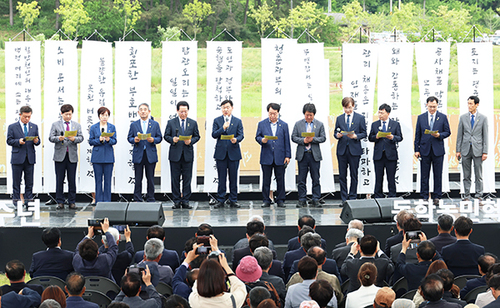
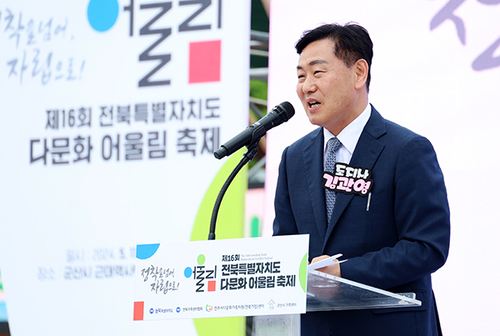
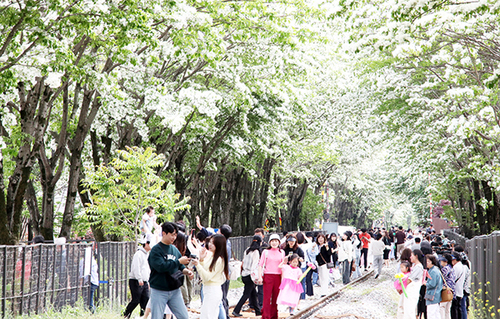
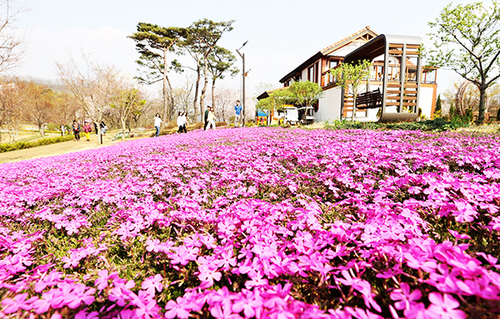
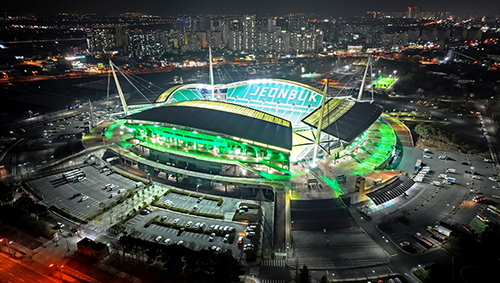
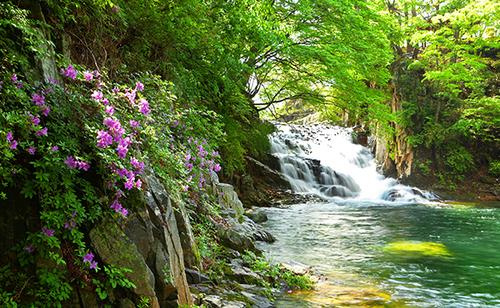
 л§Һмқҙ ліё лүҙмҠӨ
л§Һмқҙ ліё лүҙмҠӨ











